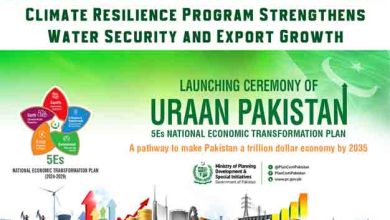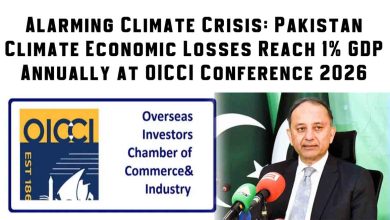Beat plastic
World Environment Day is celebrated every year on June 5 to remind the world about the various dangers of environmental degradation faced by our planet. The day also tries to mobilize legislators, policymakers, media, civil society, and people across the world to take substantive actions to protect our planet from environmental threats. The theme for this year’s World Environment Day is ‘Beat Plastic Pollution’ to highlight the poisonous impacts of plastic and make commitments to eliminate the production and consumption of plastic. Plastic pollution is one of the biggest challenges threatening the ecosystem. According to the United Nations Environment Programme, “around the world, one million plastic bottles are purchased every minute, while up to five trillion plastic bags are used worldwide every year. In total, half of all plastic produced is designed for single-use purposes – used just once and then thrown away.” According to the WWF, “250 million tonnes of garbage in Pakistan primarily consists of plastic bags, pet bottles, and food scraps.” The unchecked use of plastic has generated various negative impacts on our ecosystem and created many health issues. First, one single-use plastic bag takes thousands of years to biodegrade. Second, plastic bags are dumped in landfills, open air, and even into water bodies. Plastic garbage piled up on roads, grounds and other open spaces makes our environment unclean and unhealthy. The garbage patch which is the concentration of marine debris formed in the North Pacific Ocean also contains tons of plastic. These plastic bags are converted into toxic particles, contaminating the soil and water bodies.
Third, plastic materials choke the water animals, threatening aquatic life and ultimately disturbing the whole ecosystem. The water and land animals mistake plastic particles for food and digest them. This blocks their digestive system, becoming fatal for living organisms. A disease called ‘Plasticosis’ is identified by scientists as caused by the inadvertent consumption of plastic by water animals. Fourth, these plastic materials are carelessly thrown and they end up blocking drainage systems, which lead to the failure of drains to prevent urban flooding. As a result of floods, people face huge socio-economic losses. Fifth, the production of almost every kind of plastic relies on fossil fuels which are the reason behind global warming and accelerating climate change. Plastic pollution has become a huge challenge for nations that require concrete steps to stop it. According to the World Resource Institute, “around 127 countries have some form of regulations to control plastic,” but the problem is still exacerbating. The Environmental Protection Agency of the Ministry of Climate Change in Pakistan introduced a regulation in 2019 to impose a ban on polythene bags, which was a progressive step. Recently a parliamentary committee also directed that factories manufacturing plastic bags be sealed. Similar regulations along with implantation strategies are required for other kinds of plastic use in Pakistan. A three-pronged strategy to control plastic materials can be useful in Pakistan. First, there should be strict laws along with implementation strategies to ban the production of plastic by factories. The demand and supply principle along with a carrot-and-stick approach can be utilized to reduce the commercial production of plastic materials. If big stores and shops are discouraged to sell materials packaged in plastic like drinks, bags, etc, and also given tax rebates, the demand for plastic products will be reduced.
Also, shops and big stores still selling plastic bags can be fined. The manufacturing and material required for the production of biodegradable alternatives can be subsidized to replace traditional plastic materials with environmental-friendly and biodegradable products. As a result of a reduction in demand for plastic products, industries will find less profits in this business to invest.
The use of plastic bags by small vendors is a major problem. Small vendors can be facilitated by providing them access to cheap and easily available alternatives to plastic bags. Small vendors normally lack information about cheap alternative options and about the regulations introduced by governments. There should be targeted campaigns for small vendors to provide such information, especially about substitutes so their businesses are not impacted. It is also important to create a general public awareness campaign highlighting not only the negative impacts of plastics but also initiatives taken by governments. The habit of recycling and reusing should be promoted among people. Western countries only offer cloth or biodegradable bags on minimum payments at cash counters. This encourages people to bring shopping bags from home and adopt the habit of reuse and recycling. In Pakistan, stores and brands must introduce this culture. They can provide cloth bags on minimum payments to customers. Many famous and big brands are already observing this idea to provide environment-friendly bags. Such practices should be adopted in the form of replacements for other plastic products. It will reduce the demand for plastic products leading to minimizing profits. Similarly, buyers should also play their part to shun the use of these plastic materials. We need to take responsibility at all levels – the international, national, and individual levels – to beat plastic pollution.
The writer is a graduate of University of Oxford in Public Policy. She tweets @zilehumma_1







